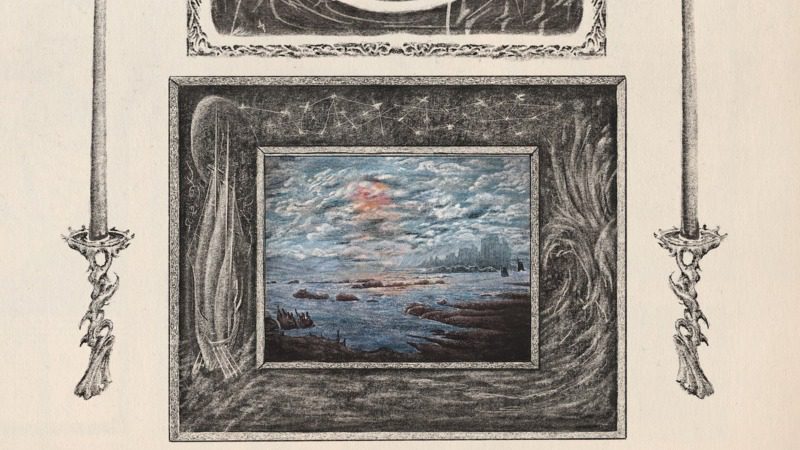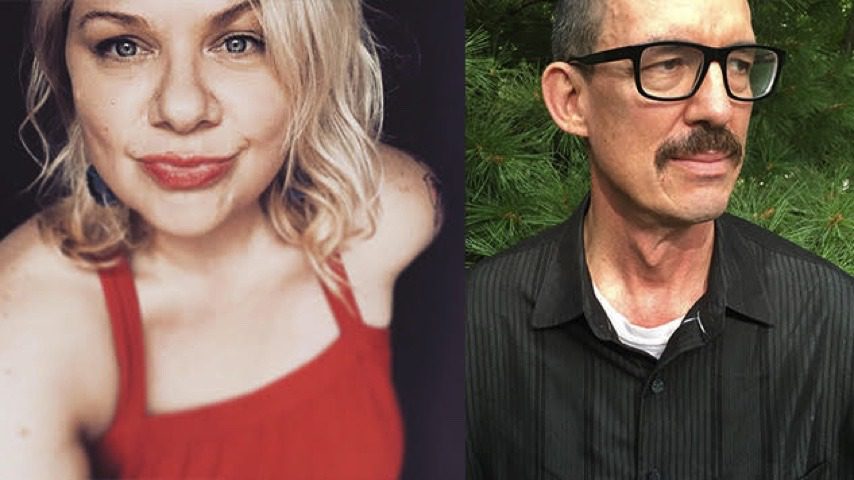“Don’t you know a warning sign when you see it?” asks Hannah Pruzinsky. Their sophomore album as h. pruz, Red sky at morning, cites the old adage that alerts sailors of bad weather ahead. The storm brews behind the beauty of a burning sky, much like how Pruzinsky’s gloomy lyrics hide in the softness of their arrangements. They are interested in how the activity of the sky, no matter how erratic, represents real things to people. As a body of work, Red sky at morning is an exploration of what to do when facing a warning. Will you heed the word of the sky and jump ship, or will you move forward, traversing muddied waters? Pruzinsky extends this question to their songwriting practice—making music is always a gamble, commercially and personally. They feared writing songs tied to their mental health, wary of opening up old wounds for the sake of art. But they moved forth anyway.
Pruzinsky has long since centered their writing practice around their environments, notably in the grievous and captivating spaces from last year’s No Glory. Citing their upbringing in a conservative enclave of Pennsylvania as their earliest push to find creative outlets, they got used to working within confined spaces, whether in an external community of repression or within their own mind. Their struggles with anxiety and dissociation are detailed on “Arrival,” where they recall a period where they hadn’t left the house in weeks, and started to “listen how the floors talk, running mouth through the dry wall.” This precarious headspace caused Pruzinsky to imagine humanity where there wasn’t any: “I start to see you in the TV screen” they sing. This song follows the same chord progression the entire time, as if to invite the listener into this same place of monotonous containment.
Zeroing in on limited settings has led Pruzinsky to write about their world in terms of specifics, which yields lyrics that are nothing short of elegiac. The sailing motif is first introduced in “Come,” which ties the patterns of staying and leaving to that of ships in a harbor: “We wake up December from the same dream / Tongue-tied bent over the dock / Watch the last ferry leave” Pruzinsky is a master at weaving intricate imagery with abstractions, a feat they also pull off in “Krista,” which centers the titular woman whose “eyes need an offering that I’m not ready to be.” Pruzinsky utilizes the natural world’s complexities to relay their thoughts and feelings: “You can feel the longing if you let it in,” they sing. “Pulling for an answer, snapping off a branch.”
Throughout Red sky at morning, Pruzinsky carefully constructs a tantalizing atmosphere, their voice breezy like the touch of air on sails, their percussion broad and hollow like the slats of a ship. While their arrangements aren’t particularly inventive within the indie-folk landscape, they’re well-suited to the album’s approach to vulnerability. Pruzinsky’s presence colors the record with an air of intimacy: they can be heard counting to three at the beginning of “Come,” as if they’re whispering over your shoulder. They toy with experimental production in light touches—when the drums come in on this song, they’re low and loose as if they’re playing in the next room over.
Pruzinsky includes several instrumental interludes on the record, which heavily aid in curating the album’s mood—especially “Whatever Comes Through,” which is built from a slow percussive groove and a voice that sits low in the mix, moving like a gust of wind. “Siren Song” embodies a space that’s more unsettling, letting the deftly plucked guitar move outside of the song’s meter. Pruzinsky’s voice sounds stuck in a telephone wire, bottled up and alluring like the titular siren. The song might be fully pleasant if not for the shrill impression of a synth that hangs over the instrumentation like a storm warning.
The emulation of these environmental elements sets Pruzinsky apart as a writer that can see outside themself—while many of their songs work through their feelings, they never fail to aim for a broader perspective, to put each track in terms of the space it occupies in the world. All of the those images come to a head on “Sailor’s warning,” where the question of warning is finally answered: Despite the fears of surrender outlined in tracks like “Arrival” or “If you cannot make it stop,” Pruzinsky arrives at the decision to “keep my eyes directed to the sun.” If writing Red sky at morning was an act of personal and creative risk, then “Sailor’s warning” is a dedication to its payoff. “And though in the morning it turns red, they say a warning sign,” sings Pruzinsky. “I know that you will change and I will too.” [Mtn Laurel Recording Co.]




